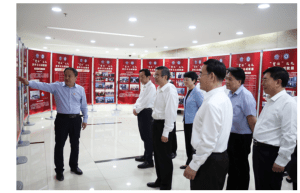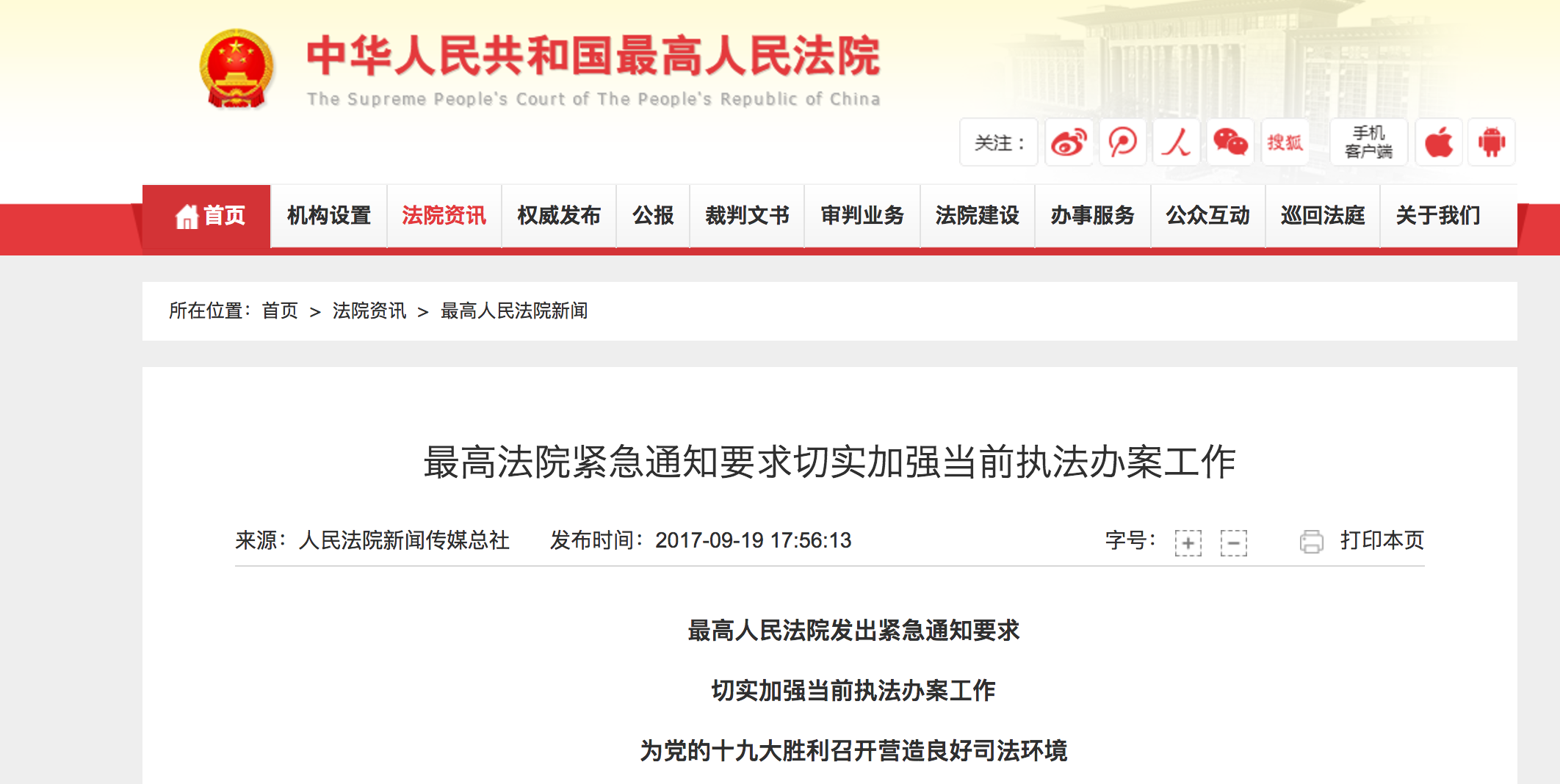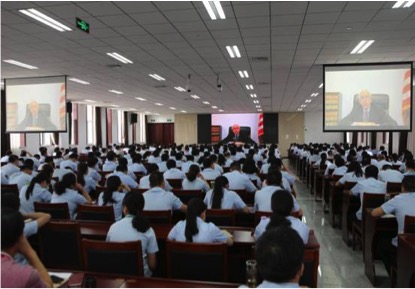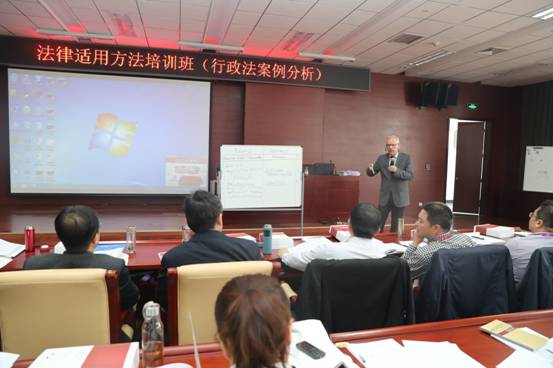
What is the Supreme People’s Court’s (SPC’s) contribution to developing the national strategy of “foreign-related rule of law (涉外法治)”? My forthcoming article in China Law & Society Review sets out a broad framework for understanding what it is, but inevitably, like all academic works, the specific details will be out of date as soon as it is published. It can only be current as of the last time I was able to make substantial amendments, that is, in November 2023. The slow process of finalizing the article (particularly the references) meant that I could incorporate references to the Tenth Politburo Study Session on Foreign-Related Rule of Law. Since then, the SPC has continued to contribute to the national strategy of developing foreign-related rule of law. This blogpost flags those recent developments without duplicating what others have already written. The recent developments include the SPC issuing the following since October, 2023:
- judicial interpretations;
- typical cases; and
- other judicial normative documents.
-
Judicial Interpretations
A September 2023 press release issued along with the fourth group of Belt & Road typical cases (为高质量共建“一带一路”提供有力司法服务和保障——最高人民法院民四庭负责人就发布第四批涉“一带一路”建设典型案例相关问题答记者问) flagged all of these judicial interpretations,. They were described in this October 2023 blogpost as “forthcoming attractions.”
- December 2023, Decision of the Supreme People’s Court to Amend the Provisions of the Supreme People’s Court on Several Issues Concerning the Establishment of International Commercial Courts(2023). This LinkedIn post explains the significance of the amendments–primarily to update China International Commercial Court rules to reflect the amended Civil Procedure Law and new provisions on the finding of foreign law in the second interpretation on the application of law to foreign-related civil relations.
- December 2023, Interpretation by the Supreme People’s Court of Several Issues Concerning the Application of International
Treaties and International Practices in the Trial of Foreign-Related Civil and Commercial Cases. The SPC held a press conference (see the photo above) and also issued a related press release (translation here) as well as typical cases (see below). Justice Wang Shumei (previously the head of the #4 Civil Division) highlighted that this interpretation was needed because the previous provisions on the application of international treaties in the General Principles of Civil Law were abolished when the Civil Code was promulgated, leaving the rules for the application of international treaties unclear. This LinkedIn post summarizes its content. - November 2023 Interpretation of the Supreme People’s Court on Several Issues Concerning the Application of the Law of the
People’s Republic of China on the Application of Laws to Foreign-Related Civil Relations (II). As this LinkedIn post details, the focus of the interpretation is on the ascertainment of foreign law. How to ascertain foreign law has been an outstanding issue, as reflected in articles by SPC judges and several judicial policy documents over the past 10 years. A paper (Chinese original here) written by CICC expert Xiao Yongping for the 2022 China International Commercial Court appointment ceremony, reviewing cases involving the ascertainment of foreign law flags some of the problems: “a lack of rules over proof by professional institutions in China has spawned a range of drawbacks, including the vague criteria for determining the admissibility of the opinions of professional institutions, the omission of analysis and reasoning of proof opinions in judgments, and the unclear rules over which party should bear the fees for proof.”The interpretation specifies that the burden is on the parties to provide the content of the chosen law if they have a choice-of-law agreement, but it falls to the court to ascertain foreign law if the parties lack a choice-of-law agreement. Other provisions are intended to change the practice of Chinese courts deciding that they cannot ascertain foreign law and it is preferable to apply Chinese law instead. Please see this Library of Congress article for further details.
typical cases
- January, 2024, ten typical cases relating to the judicial review of arbitration 仲裁司法审查典型案例 These typical (model/exemplary) cases have attracted commentary from practitioners, see here (but note that the author of the article had not noticed that the end 2022 Conference Summary [also translated as “Meeting Minutes”] of the National Symposium on Foreign-Related Commercial and Maritime Trial Work (Foreign-Related Commercial & Maritime Law Conference Summary had clarified that arbitral awards made by overseas arbitration institutions arbitrations seated in Mainland China are regarded as foreign-related arbitral awards (rather than foreign awards), as had a previous typical case. As to why the SPC is issuing multiple typical cases concerning the same issue, repetition means that the issue is important. Other commentary that appeared in People’s Court Daily was republished on the China International Commercial Court website (Chinese version).
- December 2023, twelve typical cases relating to foreign-related civil and commercial cases applying international treaties and international practices. According to the related press release mentioned above, we can expect more typical cases that apply international treaties and international practices, and standardize adjudication standards. Authoritative Chinese commentary on these cases can be found on the CICC website. When I can identify useful English language commentary, I will update this post.
Typical cases are a type of SPC soft law. They are a tool by which the SPC seeks to unify the judgment (adjudication) standards of the Chinese courts. They are a means by which the SPC seeks to harmonize the decisions of the Chinese courts to be consistent with SPC policy (or said another way, strengthen the firm guiding hand of the SPC). That guidance can relate to substantive or procedural issues, because the issues that come before the Chinese courts far outpace the infrastructure of existing law, including judicial interpretations. The number of typical cases relating to arbitration matters therefore also signals that China’s Arbitration Law is insufficient for the current needs of the Chinese courts. Additionally, given the role of the SPC in social governance, typical cases also enable the SPC to do its part to further the latest Party policy, in this instance, the development (construction) of foreign-related rule of law. As highlighted several times on this blog, SPC President Zhang Jun appears to favor using typical cases to guide the lower courts and I expect this website (currently down) is the one that will be repurposed to make various types of typical cases more easily available.
Other judicial normative documents
The document that can be so classified is the December, 2023 Work Guidelines of the Supreme People’s Court for the One-Stop Diversified International Commercial Dispute Resolution Platform (for Trial Implementation) (One-Stop Platform Guidelines). Since the China International Commercial Court was established, the SPC has stressed (and the academic world far more!) the innovation of the “One-Stop Platform.” This new document draws together SPC and lower court experience and thinking on how a “One-Stop Platform” should operate in the Chinese context. Among other innovations, it has detailed provisions concerning neutral evaluation. The incorporation of neutral evaluation into the One-Stop Platform Guidelines shows that the SPC (and the Chinese judicial system more generally) continues to make reference to “beneficial foreign/international experience.”
Concluding Comments
As flagged in several press conferences or press releases issued in recent months, the issuance of these judicial interpretations, typical cases, and other judicial normative documents is linked to the importance the Party leadership places on developing foreign-related rule of law, as illustrated by the November 2023 Politburo study session. As shown by my 1993 article on the SPC, foreign-related matters were historically at the margins of its work. One old-timer described the #4 Civil Division (the division handling foreign-related civil and commercial matters) to me as “小众“–niche–with a relatively small number of judges and responsible for a more limited range of issues, in comparison to the other SPC civil divisions.
These recent SPC documents taken together, provide insights into the important role of the SPC in developing Chinese law, in this case, foreign-related law–because many important provisions are missing from National People’s Congress (+ its Standing Committee) legislation, it falls to the SPC, through judicial interpretations, typical cases, and documents such as Meeting Minutes/Conference Summaries to fill in the gaps that enable the courts and the Chinese legal system to operate. It should be clear that the SPC is providing some of the basic building blocks for the construction (development) of foreign-related rule of law.
Happy Year of the Dragon to all readers and followers!










You must be logged in to post a comment.